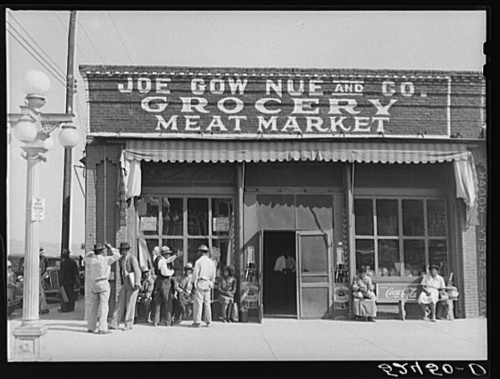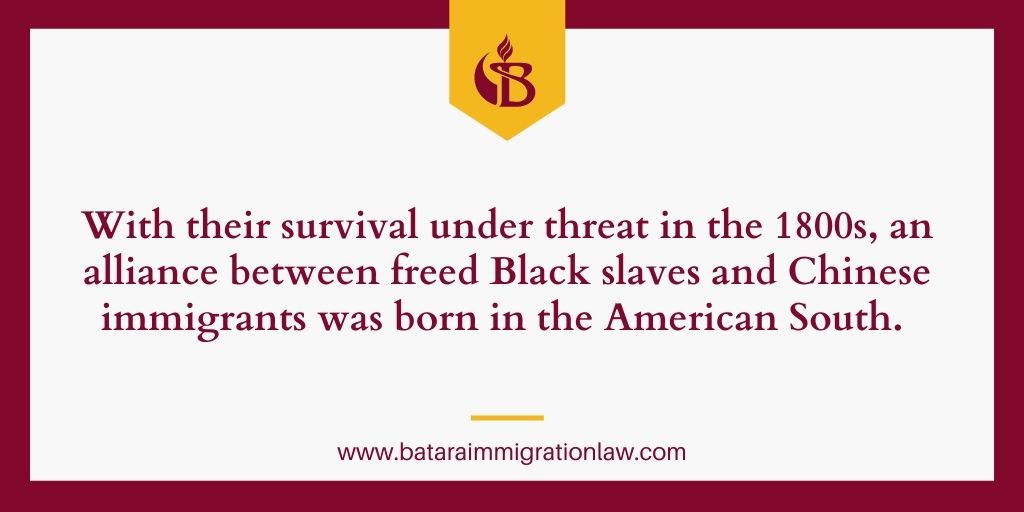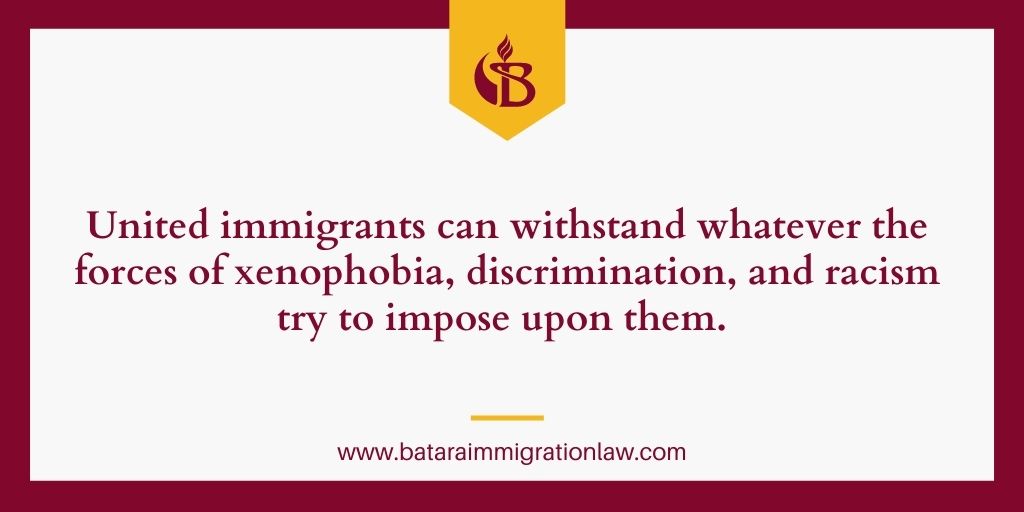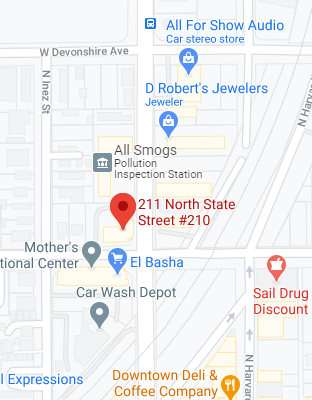
Necessity, it’s often said, is the mother of invention.
Stated more broadly, if something really needs to get done, human beings will find a way of doing it.
That was the situation facing both Black slaves and Chinese immigrants in the late 1800s.
Both groups were subject to extreme racism.
With their very survival under constant threat, their alliance was born.
If you’re like me, this is an aspect of U.S. history about which you know little.
It points out how little our society really knows about its rich immigrant roots.
And it causes me wonder if, as a country, we knew more about the rich cultural tapestry of our nation’s past, the immigration reform debate would be less rancorous today.
Towards that end, here is a snapshot of that historical period.

Life In The Lingering Shadow Of Slavery
On December 6, 1865, the ratification of the 13th amendment abolished slavery in the United States.
Shortly after, southern plantation owners began to seek new options for cheap labor.
Hearing how effective Chinese labor was in building railroads in the West, including the completion of the Transpacific Railroad and the Suez Canal, they began to devise plans to lure Chinese to the South to replace Black slaves.
These efforts coincided with the passage of the Burlingame Treaty, which expanded Chinese immigration in the United States.
By the 1870s, thousands of Chinese were working on plantations in Mississippi, Arkansas, Louisiana, and cotton fields in South Carolina and Georgia.
The Treaty required employers to provide Chinese workers with labor contracts. Southern plantation owners had little, if any intention to honor such agreements. The Chinese were treated as nothing more than slaves.
The Chinese immigrants were subjected to many of the Jim Crow laws that oppressed the Black community.
Chinese families could not live in White neighborhoods.
Like the children of freed slaves, Chinese kids were not allowed to attend the white public schools. Most were forced to attend one-room schools, with only one teacher instructing all grades from the 1st grade to the 12th grade.
Given the similarity between the treatment towards Black and Chinese families, a survival-based economic and social alliance was forged.
Inter-racial marriages became common, totaling nearly one-third of all Chinese marriages in some parts of the South during this period.
Partnership In The Postbellum South
Over time, some Chinese laborers went on strike. Others fled the plantations and left the South. Many of those who fled sparked the birth of Chinatowns in the North.
As the Chinese population in the South dropped by 60% in the 1880 and 1890s, New York’s Chinatown grew from 200 residents in 1880 to over 7,000 by 1890.
Of those who stayed in the South, a significant number migrated to the larger cities, such as New Orleans.
Most who remained went into other occupations, creating businesses like laundries that provided services to the former Black slaves and other Chinese immigrants.
Many Chinese immigrants in Mississippi began opening makeshift grocery stores with very basic items, charging less than the plantation commissary.
They became the primary grocers for black sharecroppers – who had been buying food and daily necessities from plantation commissaries owned by ex-slave owners.
The ex-slave owners inflated prices to keep the former slaves in debt. The commissaries would not extend credit to them.
The makeshift Chinese-owned grocery stores changed this dynamic. They charged lower prices to the freed slave community. Eventually, the commissaries of former slave owners began to disappear.
By the early 1900s, in the Mississippi Delta, over 95% of Chinese men living there were grocers.
Ultimately, the plan to make Chinese immigrants the new slaves of the South failed.
By 1882, the national antipathy to and fear of Chinese immigrants led to the passage of the Chinese Exclusion Act. This officially brought the importation of Chinese workers to a halt. By that time, most had already abandoned Southern plantations.
Editor’s Note: My interest about this topic was piqued by an insightful blog written by Julian Abagond. Here is a link to that article.
Chinese Americans in the Deep South
Lessons From The Chinese Immigrants And Freed Black Slaves Alliance
The alliance between the Chinese and former slaves holds a major lesson here for immigrant groups in America today.
It’s this.
United immigrants can withstand whatever rules and regulations the forces of xenophobia, discrimination, and racism try to impose upon them.

In my view as an activist turned immigration lawyer who has stood on the frontline of immigration wars for over three decades, this type of social bonding and political collaboration is a major key for long-term immigration success.
A splintered movement strengthens immigrant opponents’ ability to undermine political progress.
On the other hand, to the extent we can bring different cultures together, the greater the odds of passing compassionate and comprehensive immigration reform.
Recommended Reading:
Ready to take a serious and honest look at the strengths and weaknesses of your immigration case? Let’s get started with a personalized strategy and planning session . . .
Here's How It Works
1
Call Our Office
Immigration law doesn’t have to be confusing. You don’t have to live in fear of being deported and separated from your family. A comprehensive 30-minute Strategy And Planning Session will take the stress out of not knowing your options first-hand.
2
Meet With Carlos
Every case is unique. We refuse to take cookie-cutter approaches to your case. After we discuss the ins and outs of your immigration and family situation, Carlos will outline your chances for success and how to overcome obstacles standing in your way.
3
No Pressure - No False
Promises
Hiring a lawyer is a big investment, and we will not pressure you to hire us or push you into a plan you don’t understand. If we cannot help you, we will tell you. We will not take your case, unless we believe we can make a difference for you and your family.




